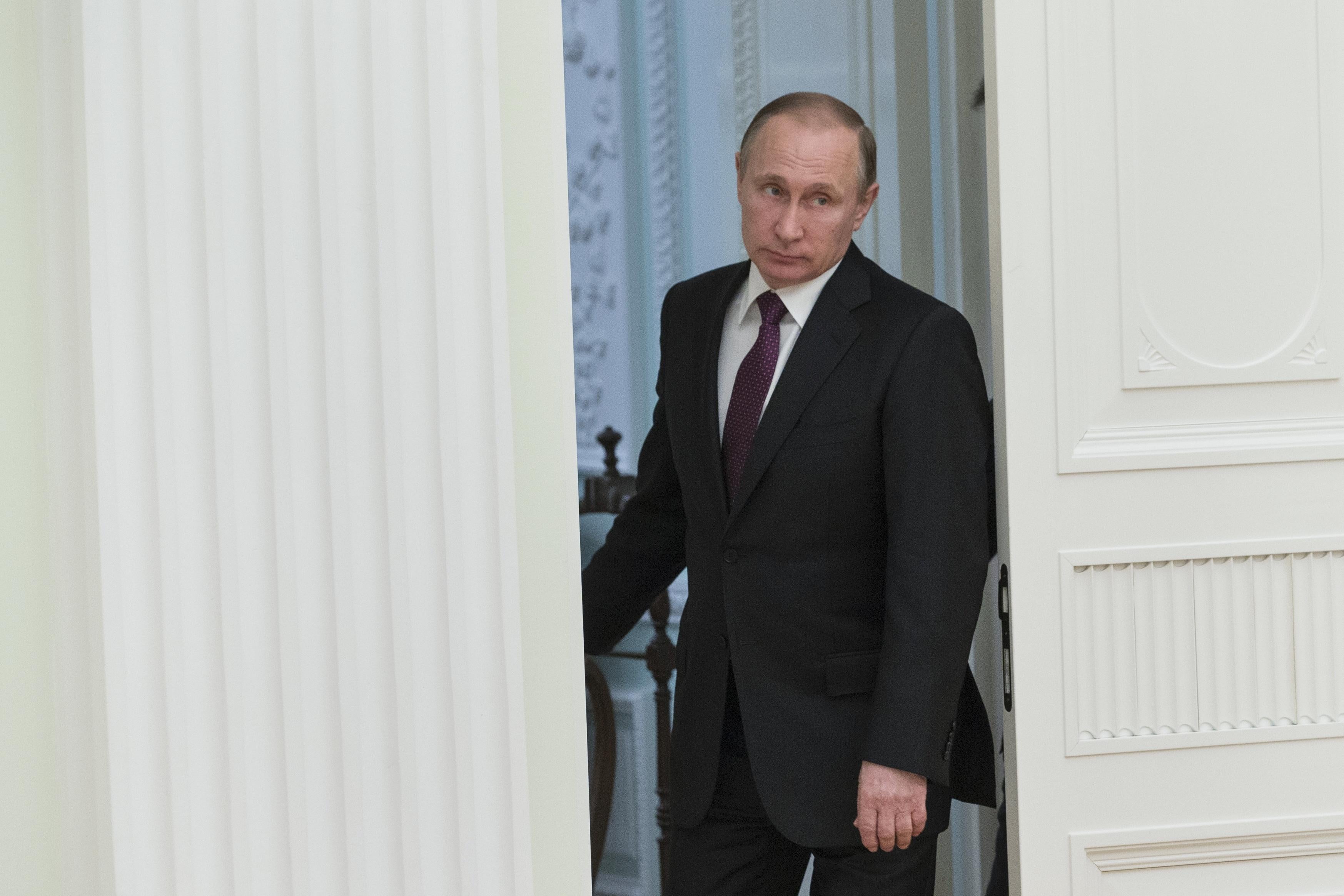Donald Trump has already fulfilled many of the worst fears people had about his presidency before he took office, but one thing he has not been is a Manchurian Candidate slavishly doing the bidding of Moscow. Whatever role Vladimir Putin’s government played in getting Trump elected, there was little sign of dramatically improved U.S.-Russia relations even before Trump took the unexpected step of launching an airstrike against the military of Russian ally Bashar al-Assad.
Before entering office, Trump and Secretary of State Rex Tillerson spoke skeptically about the sanctions imposed on Russia over its actions in Ukraine, and former National Security Adviser Michael Flynn said … something … about election meddling–related sanctions during a conversation with Russia’s ambassador in December. Yet there’s been no move to lift these sanctions so far, and Tillerson, Defense Secretary James Mattis, and U.N. Ambassador Nikki Haley have continued to decry Russian aggression in Ukraine.
While the first phone call between Trump and Putin might have been expected to be a love-fest, given the high praise the leaders had for each other during the campaign, instead the call reportedly got testy after Trump denounced the New START nuclear reduction treaty. (He had apparently not been aware of it until Putin brought it up.) Trump has also endorsed the prospect of a nuclear arms race with Russia with alarming enthusiasm.
If the new Cold War has been called off, no one has told the Pentagon. Defense officials have continued to raise alarms about Russian activities, including a military buildup in the Arctic, alleged support for the Taliban in Afghanistan, and the backing of warlord Khalifa Haftar in Libya.
And all that was before the most dramatic break yet: Thursday’s strike on Syria. The Obama administration had avoided military action against Assad in recent years, in part because of the risk of escalating conflict with Russia. While Russian personnel were reportedly warned of the Tomawhak missile strike, the Russian government has still condemned it as an “act of aggression” that will embolden terrorists, and has suspended an agreement meant to limit the risk of confrontation between U.S. and Russian forces in the region.
Prior to Trump taking office, I wrote that it was quite possible that relations with Russia could easily break down, just as they had for the two previous U.S. administrations that started out thinking that Putin was a man they could work with. But I certainly never foresaw the breakdown happening so quickly or so dramatically. (I also thought it was far more likely to happen over Iran—still possible!—than Syria, given that until 48 hours ago, Trump had pretty consistently advocated staying out of Syria completely.)
So what’s really going on here? There are a few possibilities.
One is that the degree of collusion between Trump and Russia has been exaggerated. The Russians may have intervened in the election on Trump’s behalf, but there was no actual quid pro quo or blackmail involved. (Don’t flame me, liberal readers. I want to see the results of the FBI investigation as much as you do.) But if a video of Trump cavorting with Russian prostitutes doesn’t surface in the next few days, I think we can assume it doesn’t exist.
Another is that Trump came into office intending to conduct more pro-Russian policies but has either changed his mind after confronting the realities of global affairs (we can always hope) or been hemmed in by politics. Trump may still think lifting sanctions is a good idea, but it would look disastrously bad at this point. The departure of former RT employee Flynn and elevation of more traditional hawks like H.R. McMaster and Mattis have probably also pushed the administration’s foreign policy in a more conventional direction.
Yet another is that Trump is overcompensating for his perceived chumminess with Putin and trying to look as tough on Russia as possible. The arms race talk certainly seems to fall into this category. I also saw a lot of speculation on my Twitter feed Friday that the Syria strike was a “wag the dog” operation to distract from the ongoing Russia investigation. It did help downplay at least two news stories Friday: a report that the CIA had evidence Russia was trying to aid Trump much earlier than previously believed, and another that Trump’s son-in-law and adviser Jared Kushner had omitted meetings with Russian officials on his security clearance forms.
It’s very possible Trump was actually so moved by the footage of children killed in the Idlib gas attack that he abruptly reversed course on his entire Syria policy—that kind of shift is not at all out of character for him. But it’s undeniable that the politics have worked out well for him.
So, if it’s actually true that the Russians did want Trump in office and took steps to help elect him, did they make a bad call? Maybe. Or perhaps, Russia never realistically expected a U.S. president who would do its bidding by lifting Crimea sanctions or backing Assad. Maybe Putin just wanted to sow chaos in the American political system and undermine U.S. standing in the world. The jury’s still out on that one.
Whatever the reasons for the unexpected turn taken in U.S. foreign policy, it’s still unnerving. A U.S. president in the tank for Moscow is an alarming prospect. One as erratic and impulsive as Trump, with command of the world’s mightiest nuclear arsenal, trying desperately to prove he isn’t in the tank for Moscow, is no less alarming.
